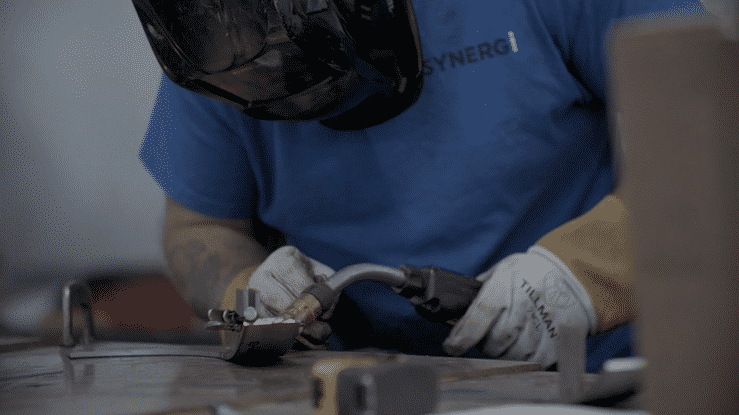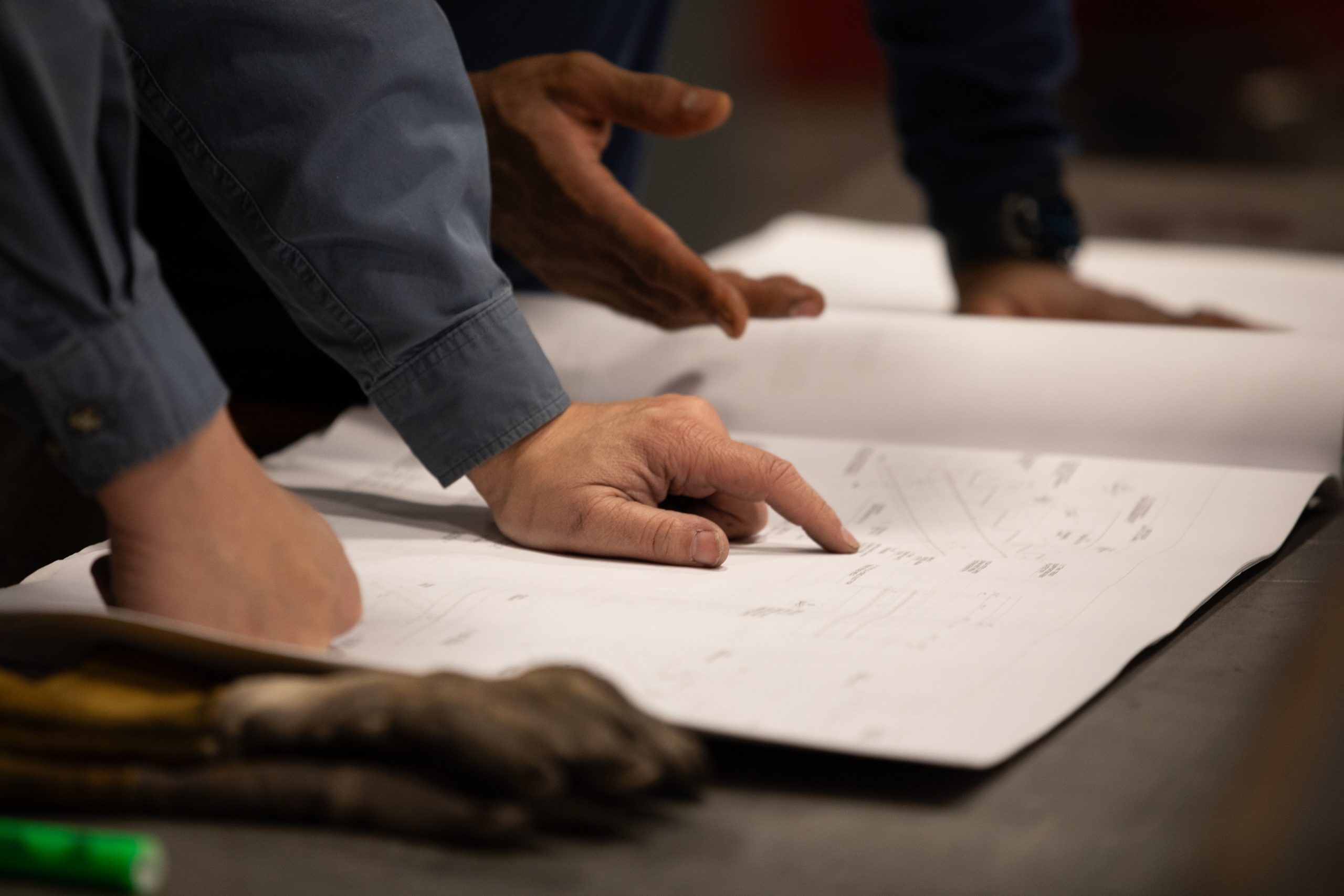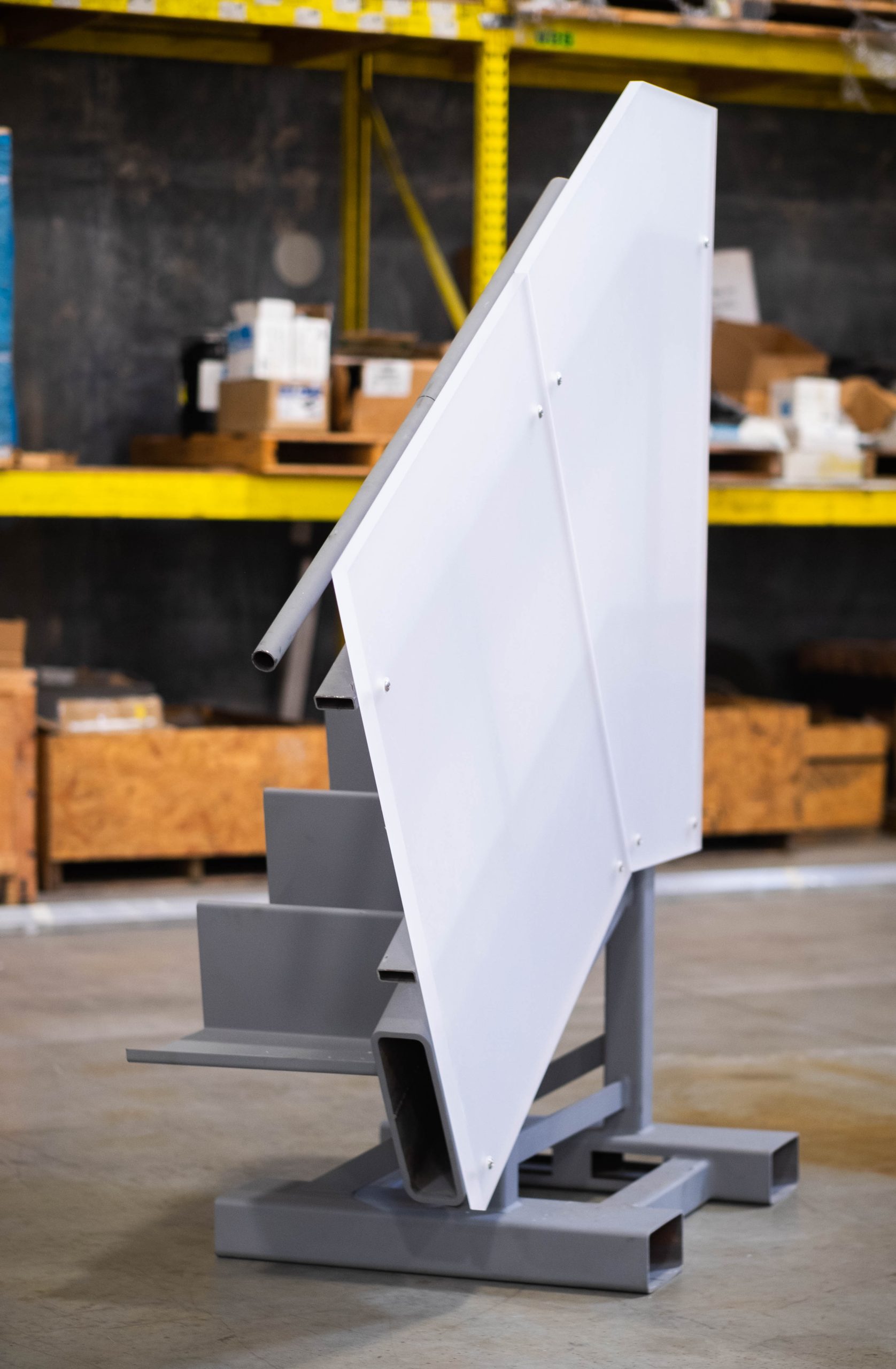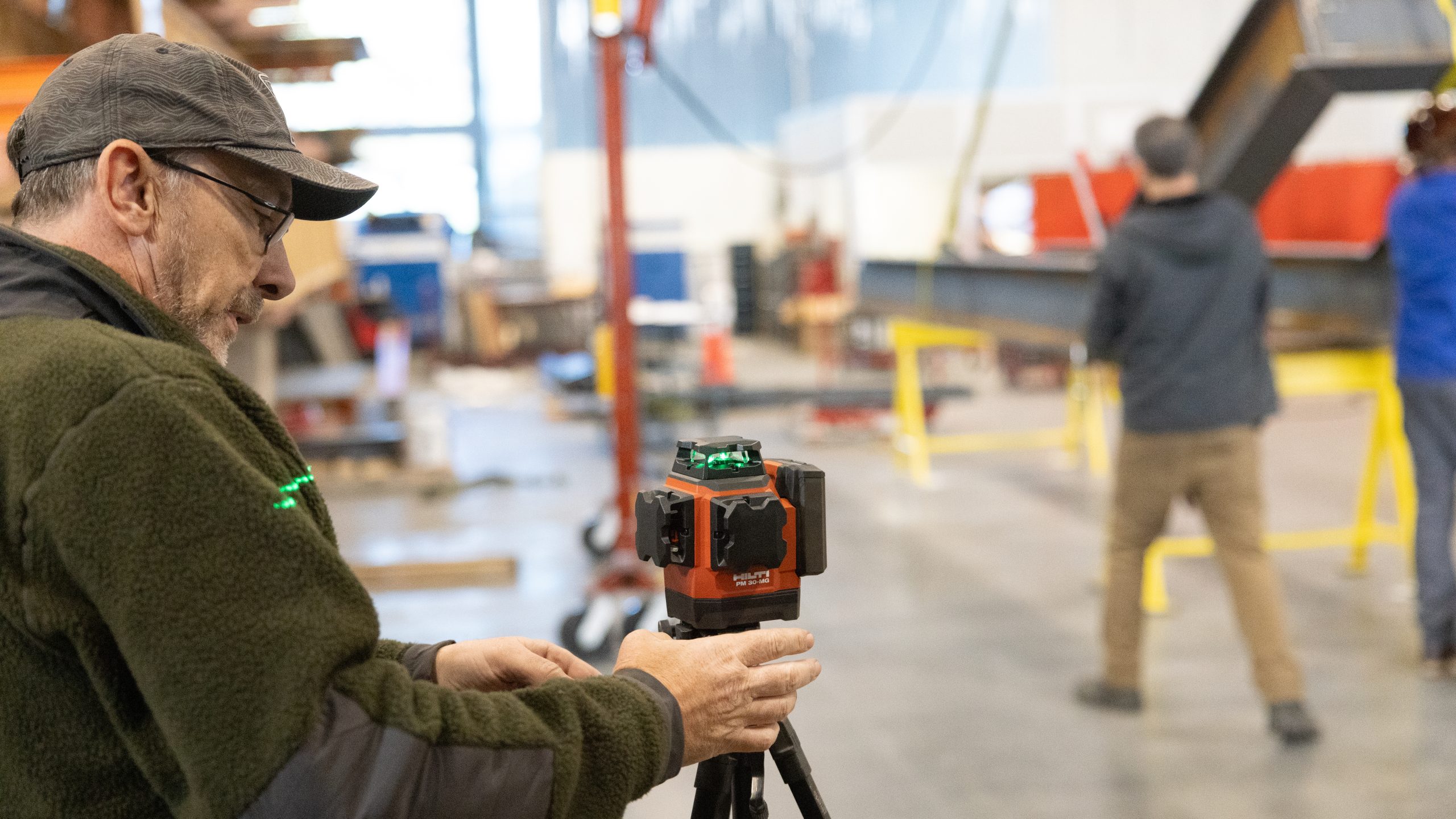Architectural
The Gold Standard In Stair Fabrication: Why AISC Certification Matters
Despite the widespread use of structural steel, not all construction projects enlist AISC-certified steel fabricators – raising concerns about rigorous quality control. Using an AISC-certified fabricator is a vital step toward ensuring the seamless execution of structural steel projects like stairs.

Most of us are familiar with the material that reigns supreme in the construction industry: structural steel. For centuries, steel has formed the backbone of skyscrapers, bridges, and commercial spaces across the globe.
Despite the widespread use of structural steel, not all construction projects enlist AISC-certified steel fabricators – raising concerns about rigorous quality control. This oversight not only poses potential risks to the structural integrity of the projects but also increases the likelihood of disastrous steel-related accidents and industry fatalities. Recognizing the importance of adherence to stringent standards, the decision to opt for an AISC-certified fabricator is not just an option but a vital step toward ensuring the seamless execution of structural steel projects like stairs.
Why AISC Certification Matters in Stair Fabrication
In the world of commercial design, every detail matters. From the layout of an office headquarters to the aesthetics of a luxury storefront, every element contributes to the overall functionality of the space. In this intricate dance of design and functionality, few elements carry as much weight – both literally and metaphorically – as a meticulously crafted staircase. When it comes to fabricating those stairs, however, many fabricators have differing methods. It’s essential to select a partner who meets the highest transparency and accountability standards. That’s where our expertise as an AISC-certified fabricator comes into play. At Synergi, we take pride in our hard-earned AISC (American Institute of Steel Construction) certification. In this article, we aim to shed light on the significance of AISC certification and why it should be a non-negotiable factor when choosing a fabricator for your next project. Let’s explore the key factors that make AISC certification the gold standard for excellence in stair fabrication.

About AISC
The American Institute of Steel Construction, based in Chicago, has been a pillar in the structural steel design and construction community since its establishment in 1921. The Institute sets industry standards for quality by offering certification to fabricators meeting specific requirements. Certified companies not only meet AISC’s stringent construction quality standards but are also subject to ongoing compliance audits. As the industry’s most widely recognized national quality certification program, AISC Certification Programs focus on the entire miscellaneous and structural steel fabrication process.
At Synergi, holding AISC certification for steel fabrication means our quality control program consistently surpasses nationally recognized benchmarks. Our clients trust the assurance an industry-leading technical institute’s nationally recognized certification program provides. This certification signifies that we, as fabricators, possess the personnel, organization, experience, procedures, knowledge, equipment, capability, and commitment to deliver premium work consistently.
AISC Certification Requirements and Qualifications
Earning AISC certifications is no small feat. It demands considerable time, effort, and financial investment to qualify and undergo annual audits—so much so that some companies opt to forgo certification altogether. Fabricators aspiring to achieve AISC certification face a demanding initial evaluation encompassing a 3rd party thorough administrative review, documentation audit, and a comprehensive on-site audit of the firm’s quality management system, fabrication facility, and equipment i.e., welding machines, measuring equipment, etc. This process can initially extend over six months, and then yearly over a matter of weeks.
Ensuring employees possess the necessary training and certifications within their respective roles is paramount. Additionally, new hires embark on a safety training journey as part of their onboarding process. This commitment to excellence underscores the dedication required to uphold the rigorous standards set by AISC certifications.
AISC certification is advantageous for our clients’ projects for several reasons:
Quality Assurance
The prime differentiator between an AISC-certified facility and one that isn’t is the level of quality control specified by AISC. AISC certification ensures that the fabricator adheres to high-quality standards in steel fabrication. Every critical process in stair fabrication, from contract and spec review to material identification, equipment calibration, and engineered welding procedures, must adhere to standards and be documented in a Quality Management System on a day-to-day basis. However, having AISC Certification doesn’t stop at product inspection requirements. It examines a company’s quality management systems as a whole. The program results in a quality management system embedded within an organization to increase productivity, which helps to reduce unnecessary costs and ensure the quality of processes. AISC-Certified companies must have complete QMS covering the entire fabrication or erection process, from quality goals to employee training to product delivery.
Cost and Time Savings
Enhanced consistency from the structural steel fabricator reduces your costs and increases profitability. Fabricators who meet AISC’s stringent requirements produce more accurate and precise work, eliminating the need for rework and saving time and costs in the long run. Inspection schedules and documentation are also identified in an AISC Certified structural steel fabricator’s QA/QC Programs, which eliminates the need for third-party inspectors and facilitates expedited deliveries.
Structural Integrity
Staircases are not just aesthetic elements but essential structural components of a building. AISC certification ensures that the fabricator follows industry best practices and engineering guidelines, resulting in structurally sound staircases that not only meet but surpass structural requirements.

Compliance and Building Codes
AISC certification demonstrates that the fabricator is knowledgeable about relevant building codes and standards. Communicating staircases must meet specific safety and building regulations, and AISC certification ensures fabricators comply with these requirements.
Better Safety
Reduced worksite accidents and other product failures result from higher quality control checks and employee training requirements through AISC Certification. These enhanced procedures stress that safety helps produce higher-quality products, exceeding industry requirements. What if a piece of steel delivered to the job site last week turns up damaged? Do you have the documentation to show that it was delivered to the site without damage? What if a coating system starts to peel? Do you have documentation regarding the surface prep? You will have the necessary information when these processes are part of your QMS. Learn more about Synergi’s safety program.
Continuous Improvement
A key feature of AISC Quality Certification programs is that it’s mandated to set yearly goals for improvement, as well as ongoing audits and inspections. This process demands fabricators to continuously improve their practices, ensuring they stay up-to-date with industry advancements and technologies. Even the best and brightest company—regardless of size—benefits by reviewing its quality procedures regularly.
Sustainability and Environmental Considerations
AISC-certified fabricators often adhere to environmentally responsible practices. These practices include efficient material usage, recycling, and waste reduction, which align with the growing demand for sustainable construction practices. Learn more about sustainability at Synergi.
Collaborative Advantage
AISC certification facilitates better collaboration between fabricators, architects, engineers, and contractors. Having a common certification standard helps streamline communication and coordination during the pre-construction and construction phases, leading to smoother project execution.
- AISC Collaborative Advantage Case Study: How SpeedCore Saved Millions On Their High Rise
This video reviews the design and construction aspects of the first high-rise in a seismically active zone in the U.S. to utilize a concrete-filled composite plate shear wall system, also known as SpeedCore. The benefits of a SpeedCore system will be highlighted by reviewing a project case study recently topped out in Seattle, Washington – Rainier Square. Benefits included construction schedule reduction, overall project cost savings, tighter tolerance through pre-fabrication, to name a few.
Increased Consistency of Operations
Nobody likes to find mistakes, especially mistakes that cost the project time or money. AISC Certification helps reduce the risk of problems by requiring documented procedures to be followed to ensure consistent quality across all projects.
Accountability
Each AISC Certified Fabricator is subject to annual audit and physical in house inspection to ensure the company’s QMS isn’t paying lip service to the standards but is actively complying with regulations throughout the company.
Latest Technology and Standards
AISC works with many leaders in the construction industry, government entities, and the public to develop consensus standards and programs. As such, AISC certification is the best way to ensure that the company you are hiring is exposed to the latest technological developments, building codes, and current best practices. With so many changes disrupting the construction industry, it pays to deal with a firm that stays up-to-date.
 Added Value
Added Value
Section 1704 of the International Building Code (IBC) and Chapter N of the AISC Specification for Structural Steel Buildings call for the waiving of the special inspection requirements for structural steel fabricators and erectors approved by the authority having jurisdiction (AHJ). Most AHJs approve AISC-certified fabricators and erectors. This waiver saves the project money and time as those inspections are performed with in-house staff, resulting in a better-quality project at a lower cost. By using fabricators and erectors that pass the rigorous standards established by the AISC, you also prove that our industry can self-police and reduce burdensome government regulations and excessive interference.
The Impact of Choosing an AISC Certified Fabricator to Fabricate Stairs
In an industry where precision and quality are non-negotiable, choosing a partner who upholds the highest standards is crucial. When creating large and intricate structures like architectural stairs and mezzanines, the fabricator aims to ensure quality by maintaining a seamless interface throughout the fabrication process. Incorporating quality controls is a natural part of this process. An AISC-certified fabricator brings more than just industry adherence; it integrates the latest structural steel fabrication technology, ensuring projects align precisely with specified standards. When owners and architects demand top-tier quality through project specifications, choosing an AISC-certified structural steel fabricator becomes indispensable to achieve that elevated and consistent level of quality.
Synergi’s hard-earned AISC certification underscores our commitment to excellence in every aspect of staircase design, engineering, fabrication, and installation. AISC certification and the stringent guidelines that come with it promote and ensure precision, training, and accountability that support the quality, safety, and ultimate performance of our products.

Synergi Announces New Office In Miami

 Added Value
Added Value